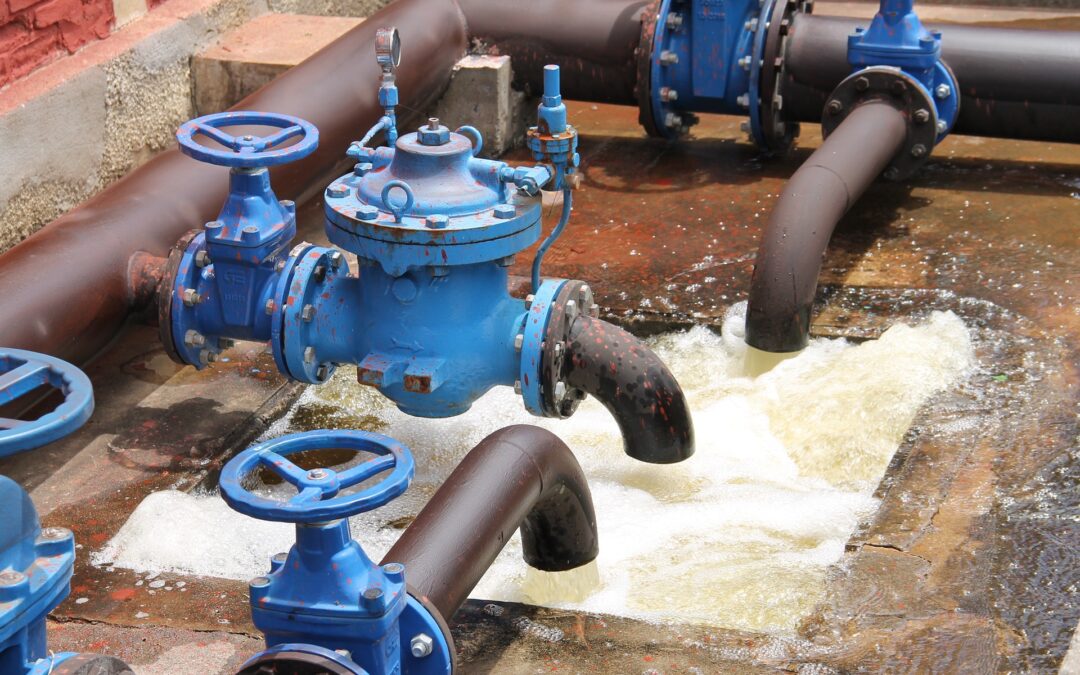Marking World Water Day 2022, three CEOs – Ramboll’s Jens-Peter Saul (JPS), WSP’s Mark Naysmith (MN), and FIDIC’s Nelson Ogunshakin (NO) – talk about the speed with which water poverty can be ended and how we avoid groundwater source depletion.
Water Poverty
IG: Is it still possible to achieve clean drinking water for everyone on Earth by 2030 – as envisaged by the UN SDGs, and what would need to happen to make it possible?
MN: “2.2 billion people across the globe still lack access to safe drinking water and more than half of the global population does not have access to safe sanitation. We must act fast to shift the dial on these sobering statistics.”
“WSP is pleased to be working with businesses, water companies and governments to develop resilient water and wastewater systems. Through this vital collaboration we can support local communities with poor water supply in the present, and successfully prepare for and adapt to challenges in the future.”
JPS: “It is obviously very unfortunate that so many people lack access to safe drinking water and sanitation. Time is running and with less than eight years left to 2030 significant action is needed to reach these ambitious and very important goals. The good news is that we do have the technology, knowhow and experience needed to meet the ambitions. So, what the world needs now is political priority, willingness, and dedicated resources to make it happen.”
NO: “We really can tackle and eradicate water poverty quickly but it is going to take a new approach because water as a resource is too often undervalued, under-invested in and not given the policy prioritisation it deserves. If we can ensure water is valued appropriately, then industry and government can invest, innovate and deliver clean drinking water and sanitation to everyone.”
JPS: ““Fortunately, political leaders can seek inspiration from the ‘Tap for Every Home’ programme in India, initiated by Prime Minister Narendra Modi. India is one of the world’s most water-stressed countries but is now halfway through an ambitious drive to provide clean tap water by 2024 to all the roughly 192 million households across its 600,000 villages. About 18,000 government engineers are overseeing the $50bn undertaking, which includes hundreds of thousands of contractors and labourers who are laying more than 2.5 million miles of waterpipe. This is indeed a positive example to follow for political leaders in other countries and regions dealing with similar challenges.”
Groundwater Depletion
IG: Many of the world’s groundwater sources are facing depletion from over-exploitation. How do we improve the efficiency and sustainability of global water-use to avoid worsening that ecological impact as we expand access to clean water?
MN: “With global groundwater supplies quickly depleting, we must implement a holistic approach to managing water across its entire lifecycle. This means not only reusing water where we can, such as rainwater harvesting, but most importantly reducing demand, including through the installation of new technologies like smart metering and water efficient appliances to monitor and limit usage.”
JPS: “When touching upon the over-exploitation issue it is worth mentioning that overdraft not only leads to water scarcity but can also cause saltwater intrusion, land subsidence, and/or chronic lowering of groundwater levels. Again, sustainable water-use requires political dedication and willingness as the technology and knowhow is already there.”
“An example to follow on this topic is the Sustainable Groundwater Management Act (SGMA) in California which was enacted in 2014 by then-Governor Jerry Brown. SGMA requires local agencies to form groundwater sustainability agencies (GSAs) for the high and medium priority basins, and to develop and implement groundwater sustainability plans (GSPs) to avoid undesirable results and mitigate overdraft within 20 years.”
NO: “Groundwater will be integral to helping hundreds of millions out of water poverty and meet an expected 20-30% rise in water demand over the coming years. It also plays a big part in supporting agriculture around the world, so over-exploitation and ecological damage must be addressed.”
“While significant ‘traditional hard infrastructure’ will remain necessary to tackling water poverty, we must also make natural solutions and behavioural strategies integral to global management of the world’s finite freshwater reserves. If we apply that best practice now, we can avoid long-term ecological and human disasters.”
JPS: “In addition, I would advise regulators to strongly consider if all kinds of industries should have unlimited and unrestricted access the precious groundwater resources. Does intensive agriculture make sense in water scarce areas? Or should drought-resistant crops have first priority? Fair regulation is needed to ensure equal access and could incentivise efficient water management in agriculture and water-consuming industries.”
The post How do we address water scarcity and ground water depletion? appeared first on Infrastructure Global.

